Heather Boon, BScPhm, PhD and Michael Smith, BPharm, MRPharmS, ND
See book keywords and concepts |
 OPHTHALMOLOGY EFFECTS
Ginkgo biloba extract is believed to protect the eye from damage by reducing free-radical damage to the retina.155 156 Animal studies suggest that ginkgo may be useful in the prevention of retinal damage in diabetes,155 157 and in cases of lesions, inflammations or degenerative insults of the retina.158 Several small clinical studies provide preliminary evidence that ginkgo may be beneficial in the management of glaucoma. OPHTHALMOLOGY EFFECTS
Ginkgo biloba extract is believed to protect the eye from damage by reducing free-radical damage to the retina.155 156 Animal studies suggest that ginkgo may be useful in the prevention of retinal damage in diabetes,155 157 and in cases of lesions, inflammations or degenerative insults of the retina.158 Several small clinical studies provide preliminary evidence that ginkgo may be beneficial in the management of glaucoma. |
| UROLOGY EFFECTS Impotence
Ginkgo biloba extract has been suggested in the treatment of impotence. One study of 60 patients with proven arterial erectile dysfunction who had not responded to papaverine injections were given 60 mg/day of ginkgo extract for 12-18 months. Improvement in blood flow (as measured by duplex sonography) was noted after 6 to 8 weeks and 50% of the men gained potency after 6 months. In another 20% of the sample, a new trial with papaverine proved successful. |
volker schulz and Rudolf Hansel
See book keywords and concepts |
 Special extracts from gingko (Gingko biloba) leaves have value in the symptomatic treatment of peripheral arterial occlusive disease. Another major application of these ginkgo extracts is in the symptomatic treatment of cognitive deficits secondary to organic brain disease (see Sect. 2.1).
3.3.1.1 Historical Background
Garlic is a traditional herb. Some of the earliest references to this medicinal and culinary plant are found on Sumerian clay tablets dating from 2600-2100 BCE. Special extracts from gingko (Gingko biloba) leaves have value in the symptomatic treatment of peripheral arterial occlusive disease. Another major application of these ginkgo extracts is in the symptomatic treatment of cognitive deficits secondary to organic brain disease (see Sect. 2.1).
3.3.1.1 Historical Background
Garlic is a traditional herb. Some of the earliest references to this medicinal and culinary plant are found on Sumerian clay tablets dating from 2600-2100 BCE. |
Robert S. McCaleb, Evelyn Leigh, and Krista Morien
See book keywords and concepts |
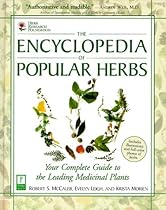 Ginkgo biloba standardized extract is well researched. The dose is 120 mg per day of an extract standardized to 24 percent ginkgo flavone glycosides. This extract is approximately a SO: 1 concentrate. But a product may be labeled "Contains all the ginkgo flavone glycosides present in a 24 percent extract." Although it may in fact contain a true 24 percent extract (that is, less than one-fourth of the potency of ginkgo leaves), this extract contains far less than the 24 percent glycosides contained in a standardized extract. Ginkgo biloba standardized extract is well researched. The dose is 120 mg per day of an extract standardized to 24 percent ginkgo flavone glycosides. This extract is approximately a SO: 1 concentrate. But a product may be labeled "Contains all the ginkgo flavone glycosides present in a 24 percent extract." Although it may in fact contain a true 24 percent extract (that is, less than one-fourth of the potency of ginkgo leaves), this extract contains far less than the 24 percent glycosides contained in a standardized extract. |
Donald R. Yance, j r.,C.N., M.H., A.H.G., with Arlene Valentine
See book keywords and concepts |
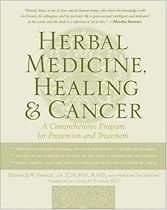 Ginkgo [Ginkgo biloba)
Many people would not think of using this popular herb for any kind of cancer protocol. Ginkgo is recognized primarily for restoring brain health by dilating peripheral blood vessels, increasing cerebral vascular circulation, and oxygen utilization. But ginkgo is also a free-radical scavenger that stimulates the immune system, is anti-inflammatory, inhibits histamine release, and is fibrinolytic. Ginkgo extract enhances the cytotoxic effects of radiation while reducing the overall toxic effects. Ginkgo [Ginkgo biloba)
Many people would not think of using this popular herb for any kind of cancer protocol. Ginkgo is recognized primarily for restoring brain health by dilating peripheral blood vessels, increasing cerebral vascular circulation, and oxygen utilization. But ginkgo is also a free-radical scavenger that stimulates the immune system, is anti-inflammatory, inhibits histamine release, and is fibrinolytic. Ginkgo extract enhances the cytotoxic effects of radiation while reducing the overall toxic effects. |
Natural Prescriptions: Dr. Giller's Natural Treatments & Vitamin Therapies For Over 100 Common AilmentsRobert M. Giller, M.D.
See book keywords and concepts |
| Ginko biloba has also been helpful.
Relaxation techniques seem to be very helpful; they don't stop the noise but they make it much easier to live with. I've had patients who, despite every effort at eliminating tinnitus, have been unsuccessful. However, they found that when they adopted specific techniques for controlling stress, the tinnitus was much easier to tolerate (see Stress Control, page 314).
Many people who have tinnitus, especially elderly people, are also hard of hearing. |
Dr. Gary Null
See book keywords and concepts |
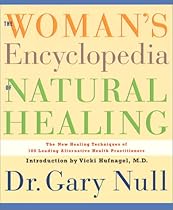 Ginkgo biloba. Studies demonstrate ginkgo's effectiveness in leveling mood swings.
Ginseng normalizes brain hormones. It balances body temperature and is effective in preventing hot flashes.
Wild yam contains beneficial progesterone, the precursor of estrogen. This gives a woman the building blocks needed to create more hormones.
The following herbs may also prove beneficial: licorice root, black cohosh, dong quai, alfalfa, red clover, sarsaparilla, and blessed thistle.
HOMEOPATHY
The homeopathic remedy chosen should correspond to the symptoms described. Ginkgo biloba. Studies demonstrate ginkgo's effectiveness in leveling mood swings.
Ginseng normalizes brain hormones. It balances body temperature and is effective in preventing hot flashes.
Wild yam contains beneficial progesterone, the precursor of estrogen. This gives a woman the building blocks needed to create more hormones.
The following herbs may also prove beneficial: licorice root, black cohosh, dong quai, alfalfa, red clover, sarsaparilla, and blessed thistle.
HOMEOPATHY
The homeopathic remedy chosen should correspond to the symptoms described. |
| Ginkgo biloba. The ginkgo tree has survived for hundreds of thousands of years due to its powerful immune system. An extract of the leaf of the tree improves circulation to the microcapillaries of the brain and heart so that needed nutrients and oxygen can get to all the tissues.
Ginseng is the best-known longevity herb. For centuries, the Chinese have revered ginseng for its rejuvenating effects. Research has shown that ginseng can stop free radical damage associated with aging. It helps people focus better when under stress, and increases overall energy levels.
Gota kola. |
Robert S. McCaleb, Evelyn Leigh, and Krista Morien
See book keywords and concepts |
 Ginkgo gets its species name, biloba, from its graceful two-lobed leaves, which turn brilliant yellow in autumn.
Although native to Asia, ginkgo trees are commonly planted as ornamentals in North America. Today, large, stately ginkgo trees line the streets of many American cities. They are popular not only for their beauty but because they are hardy, able to withstand cold temperatures and pollution, and to resist insects, disease, and disease-causing organisms.
Although they are slow growing, ginkgo trees are not difficult to cultivate. Ginkgo gets its species name, biloba, from its graceful two-lobed leaves, which turn brilliant yellow in autumn.
Although native to Asia, ginkgo trees are commonly planted as ornamentals in North America. Today, large, stately ginkgo trees line the streets of many American cities. They are popular not only for their beauty but because they are hardy, able to withstand cold temperatures and pollution, and to resist insects, disease, and disease-causing organisms.
Although they are slow growing, ginkgo trees are not difficult to cultivate. |
Ralph Golan, M.D.
See book keywords and concepts |
 HERBAL REMEDIES
• Use hawthorn berry, ginkgo biloba, garlic, onions, catechin, and quercetin, as discussed in ARTERIOSCLEROSIS and Chapter Nineteen.
OTHER THERAPIES
• Follow a regular exercise program and develop relaxation and stress management skills, as discussed under ARTERIOSCLEROSIS.
Heartburn
A hot, burning, or acid sensation in the upper abdomen or lower chest usually occurring shortly after a meal. It can last up to several hours.
Related or Underlying Causes
Heartburn can be caused by both insufficient and excessive amounts of stomach acid. HERBAL REMEDIES
• Use hawthorn berry, ginkgo biloba, garlic, onions, catechin, and quercetin, as discussed in ARTERIOSCLEROSIS and Chapter Nineteen.
OTHER THERAPIES
• Follow a regular exercise program and develop relaxation and stress management skills, as discussed under ARTERIOSCLEROSIS.
Heartburn
A hot, burning, or acid sensation in the upper abdomen or lower chest usually occurring shortly after a meal. It can last up to several hours.
Related or Underlying Causes
Heartburn can be caused by both insufficient and excessive amounts of stomach acid. |
| Ginkgo biloba and bilberry are specific to halting diabetic retinopathy and are found combined together with grape pip in Pro-anthanol by Allergy Research/Nutricology of San Leandro, California.
• Garlic and onions, whether cooked or raw, are known to lower blood sugar levels. (See Chapter Nineteen for information on their remarkable cardiovascular effects and other properties.)
• Quercetin is a flavonoid commonly used in treating diabetes as it inhibits aldose reductase, an enzyme involved in diabetic cataracts, retinopathy, and neuropathy. |
Robert S. McCaleb, Evelyn Leigh, and Krista Morien
See book keywords and concepts |
 The remarkable effects of
Ginkgo biloba on memory, brain function, and circulation have made this venerable tree one of the most extensively studied and widely used botanicals in the world.The herb's popularity is well deserved, because strong clinical evidence shows that it can help improve declining brain function in elderly people, even those with Alzheimer's disease. The remarkable effects of
Ginkgo biloba on memory, brain function, and circulation have made this venerable tree one of the most extensively studied and widely used botanicals in the world.The herb's popularity is well deserved, because strong clinical evidence shows that it can help improve declining brain function in elderly people, even those with Alzheimer's disease. |
Ralph Golan, M.D.
See book keywords and concepts |
 HERBAL REMEDIES
• Try ginkgo biloba (40 milligrams twice a day), pycnogenol (20 milligrams twice daily), and cayenne (one or two capsules per meal); include some of the following herbs in your regular diet: ginger, rosemary, garlic, onion, sage, and cinnamon.
OTHER THERAPIES
• Exercise is crucial for effective circulation. Walking or jogging is superb, but any exercise will help. Also, try yoga, tai chi, or stretching.
• Hydrotherapy can enhance the circulation in an extraordinary way. Alternating hot and cold applications of water can be effective (see Chapter Twenty). HERBAL REMEDIES
• Try ginkgo biloba (40 milligrams twice a day), pycnogenol (20 milligrams twice daily), and cayenne (one or two capsules per meal); include some of the following herbs in your regular diet: ginger, rosemary, garlic, onion, sage, and cinnamon.
OTHER THERAPIES
• Exercise is crucial for effective circulation. Walking or jogging is superb, but any exercise will help. Also, try yoga, tai chi, or stretching.
• Hydrotherapy can enhance the circulation in an extraordinary way. Alternating hot and cold applications of water can be effective (see Chapter Twenty). |
Phyllis A. Balch, CNC
See book keywords and concepts |
 Ginkgo biloba is one of the oldest living tree species, dating back to over 300 million years. Individual trees can live for 1,000 years. Ginkgo trees are very resistant to viruses, fungi, insects, pollution, and even radiation. The medicinal use of ginkgo dates back almost 5,000 years in Chinese herbal medicine. It was used for respiratory tract ailments and for memory loss in older adults.
EVIDENCE OF BENEFIT
Ginkgo is the world's most-used treatment for memory loss and degenerative diseases of the brain and central nervous system. Ginkgo biloba is one of the oldest living tree species, dating back to over 300 million years. Individual trees can live for 1,000 years. Ginkgo trees are very resistant to viruses, fungi, insects, pollution, and even radiation. The medicinal use of ginkgo dates back almost 5,000 years in Chinese herbal medicine. It was used for respiratory tract ailments and for memory loss in older adults.
EVIDENCE OF BENEFIT
Ginkgo is the world's most-used treatment for memory loss and degenerative diseases of the brain and central nervous system. |
Ralph Golan, M.D.
See book keywords and concepts |
 Uses
Antibacterial
Antiviral
Antifungal
Antiparasitic
Antitumor
Antioxidant
Ear infections
Decreased total and LDL cholesterol levels
Decreased triglyceride levels
Increased HDL cholesterol level
Decreased blood pressure
Decreased platelet aggregation (clumping)
Prevention of thrombosis
Increased insulin availability for diabetics
Immunostimulation
Ginkgo {Ginkgo biloba)
1. Uses
Antibacterial
Antiviral
Antifungal
Antiparasitic
Antitumor
Antioxidant
Ear infections
Decreased total and LDL cholesterol levels
Decreased triglyceride levels
Increased HDL cholesterol level
Decreased blood pressure
Decreased platelet aggregation (clumping)
Prevention of thrombosis
Increased insulin availability for diabetics
Immunostimulation
Ginkgo {Ginkgo biloba)
1. |
Phyllis A. Balch, CNC
See book keywords and concepts |
 The most widely sold solid extract in the world, ginkgo biloba extract (GBE), has fifty times the concentration of the biologically active ginkgolides found in ginkgo leaf. This concentration process makes it possible to take several small capsules weighing about one-quarter of a gram (less than one-hundredth of an ounce) for a daily dose of ginkgo instead of 10 to 15 grams (one-third to one-half of an ounce) ginkgo leaf in teas.
Granules
Granules consist of powdered herb held together with binders. The most widely sold solid extract in the world, ginkgo biloba extract (GBE), has fifty times the concentration of the biologically active ginkgolides found in ginkgo leaf. This concentration process makes it possible to take several small capsules weighing about one-quarter of a gram (less than one-hundredth of an ounce) for a daily dose of ginkgo instead of 10 to 15 grams (one-third to one-half of an ounce) ginkgo leaf in teas.
Granules
Granules consist of powdered herb held together with binders. |
| DHA keeps
Ginkgo: The Memory Herb and Alzheimer's Disease
Ginkgo biloba extract can help people with many diseases of senility, including Alzheimer's disease. This extract increases the functional capacity of the brain through its effects on acetylcholine, a chemical that allows the nerve cells responsible for memory and reasoning to communicate with each other. Ginkgo makes the hippocampus, the part of the brain most affected by Alzheimer's disease, more receptive to acetylcholine. It also increases the ability of acetylcholine to transmit nerve messages. |
Glenn W. Geelhoed, M.D. and Jean Barilla, M.S.
See book keywords and concepts |
 For centuries, the Chinese have been using ginkgo biloba to treat allergies. Both its bark and its leaves provide effective remedies. Ginkgo treatment is also popular with other Asians, the Germans and the French. Ginkgo contains ginkgolides, which are compounds that smooth and soothe lung tissue and relax constricted bronchial tubes. herbal tea Fenugreek is full of calcium and other minerals and has a soothing effect on the respiratory system. If you suffer from hay fever, drinking 1 cup of fenugreek seed tea a day may help. For centuries, the Chinese have been using ginkgo biloba to treat allergies. Both its bark and its leaves provide effective remedies. Ginkgo treatment is also popular with other Asians, the Germans and the French. Ginkgo contains ginkgolides, which are compounds that smooth and soothe lung tissue and relax constricted bronchial tubes. herbal tea Fenugreek is full of calcium and other minerals and has a soothing effect on the respiratory system. If you suffer from hay fever, drinking 1 cup of fenugreek seed tea a day may help. |
| GINKGO Many people around the world believe that the ancient ginkgo biloba plant has the ability to improve memory, increase mental alertness, and lessen ringing in the ears. In Europe and Asia, over five million people take ginkgo each year to prevent the effects of aging. The usual dosage is one 40mg tablet 3 times a day.
Research conducted in France, and at several other places in Europe, indicates that the herb acts by increasing the blood flow to the brain and improving the oxygen supply to the heart and other organs. |
| Ginkgo
Ginkgo biloba is a tree that has existed for over 200 million years — a "living fossil." Buddhists used to consider it holy, and for good reason — recent research has discovered that ginkgo extracts really do help reduce the effects of aging on the brain.
Discovered by German Engelbert Kaempfer in 1690 and later exported to Europe, ginkgo is one longevity secret that seems to grow almost everywhere. In fact, it's become a common plant on many city streets because its hardiness allows it to grow under very adverse conditions.
What's the secret? |
Jean Carper
See book keywords and concepts |
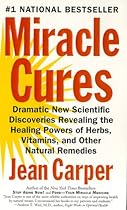 For example, Ginkgold (ginkgo biloba) and Thisilyn (milk thistle) are both made by large German companies. Because such remedies must meet the strict standards of Germany, they inspire confidence. Many large European companies, such as Indena in Italy, are now formulating their successful high-quality botanical remedies for an American market. If in doubt, ask your pharmacist or personnel in your health food store to direct you to well established supplement companies with excellent reputations for producing quality products. For example, Ginkgold (ginkgo biloba) and Thisilyn (milk thistle) are both made by large German companies. Because such remedies must meet the strict standards of Germany, they inspire confidence. Many large European companies, such as Indena in Italy, are now formulating their successful high-quality botanical remedies for an American market. If in doubt, ask your pharmacist or personnel in your health food store to direct you to well established supplement companies with excellent reputations for producing quality products. |
| For six months the patients were given either a dummy pill or a daily dose of 240 milligrams of standardized ginkgo biloba extract (EGb 761), taken twice a day before meals.
Undeniably, those getting ginkgo did much better. As judged by specific tests, overall condition, including improvement in "memory and attention functions," was about three times better in ginkgo takers than in those on the inactive pills. The plant medicine was more effective after six months than after three months. |
| More than fifty controlled clinical trials confirm ginkgo biloba as a treatment for diminished memory and concentration, increased absentmind-edness, confusion, energy loss, tiredness, depression, dizziness, and tinnitus (ringing in the ears.) Specifically, researchers have documented the use of ginkgo in treating dementia, including Alzheimer's.
The impact of ginkgo can be enormous, revitalizing brain activity and stopping or reversing a constellation of symptoms due to poor blood flow. |
| It is called ginkgo biloba, and its beneficial effects on blood circulation and brain function make this herb a remarkable medicine. It works in both neurodegenerative and vascular diseases, such as poor blood flow to the brain because of narrowed blood vessels—a common cause of impaired memory and other symptoms of so-called "senility." In Germany and France ginkgo is widely prescribed as a treatment for age-related mental malfunction, including general dementia and Alzheimer's. |
Paul Pitchford
See book keywords and concepts |
 One such remedy is Ginkgo biloba tree leaf, which has been shown in clinical studies to increase blood flow and neural transmission in the brain.37'38 An extract of the leaf of the ginkgo— the oldest living tree species—has reduced senile symptoms such as memory loss, vertigo, ringing in the ears, depression, and lack of vigilance.39-40 The micro-algae wild blue-green and chlorella have also been beneficial in certain cases of senility. Nutritional supplements, which are sometimes helpful—especially when the diet remains poor—are best taken with advice based on expert diagnosis. One such remedy is Ginkgo biloba tree leaf, which has been shown in clinical studies to increase blood flow and neural transmission in the brain.37'38 An extract of the leaf of the ginkgo— the oldest living tree species—has reduced senile symptoms such as memory loss, vertigo, ringing in the ears, depression, and lack of vigilance.39-40 The micro-algae wild blue-green and chlorella have also been beneficial in certain cases of senility. Nutritional supplements, which are sometimes helpful—especially when the diet remains poor—are best taken with advice based on expert diagnosis. |
Ralph Golan, M.D.
See book keywords and concepts |
 Hawthorn berry, ginkgo biloba, and catechin all protect arterial walls. Take solid hawthorn berry extract (lA to Vi teaspoon twice a day), from Scientific Botanicals, Seattle; ginkgo (40 milligrams twice a day); and catechin from gambir from Thorne Research of Sandpoint, Idaho (400 milligrams twice a day).
• Green tea, unroasted, is also high in catechin, which helps maintain connective tissues in arteries and elsewhere. If you do not have high blood pressure and are not caffeine sensitive, the benefits may offset the small amount of caffeine. Drink up to 2 cups a day. Hawthorn berry, ginkgo biloba, and catechin all protect arterial walls. Take solid hawthorn berry extract (lA to Vi teaspoon twice a day), from Scientific Botanicals, Seattle; ginkgo (40 milligrams twice a day); and catechin from gambir from Thorne Research of Sandpoint, Idaho (400 milligrams twice a day).
• Green tea, unroasted, is also high in catechin, which helps maintain connective tissues in arteries and elsewhere. If you do not have high blood pressure and are not caffeine sensitive, the benefits may offset the small amount of caffeine. Drink up to 2 cups a day. |
Sheldon Saul Hendler
See book keywords and concepts |
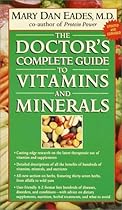 Ginkgo biloba leaves and fruits contain, among other things, bioflavonoids, flavoglycosides (bioflavonoids containing a sugar residue within the structure), proanthrocyanidines (substances closely related to bioflavonoids) and a collection of unusual polycyclic structures called ginkgolides which are, chemically, polylacetones. It has been thought that these substances produce their therapeutic actions by acting as antioxidants (scavengers of toxic free oxygen radicals) and by inhibiting platelet aggregation. Ginkgo biloba leaves and fruits contain, among other things, bioflavonoids, flavoglycosides (bioflavonoids containing a sugar residue within the structure), proanthrocyanidines (substances closely related to bioflavonoids) and a collection of unusual polycyclic structures called ginkgolides which are, chemically, polylacetones. It has been thought that these substances produce their therapeutic actions by acting as antioxidants (scavengers of toxic free oxygen radicals) and by inhibiting platelet aggregation. |
Janet Zand, LAc, OMD, Allan N. Spreed, MD, CNC, James B. LaValle, RPh, ND
See book keywords and concepts |
 Ginkgo biloba may help inhibit macular degeneration. It has strong free-radical-scavenging activity. Select a formula containing at least 24 percent ginkgo heterosides (sometimes also called flavoglycosides) and take 40 to 60 milligrams two to three times daily.
HOMEOPATHY
¦ See a homeopathic practitioner for a constitutional remedy. Constitutional treatment can help prevent further degeneration.
Malabsorption/ Malnutrition
Malabsorption is a general term for the failure to properly convert food into usable nutrients. Ginkgo biloba may help inhibit macular degeneration. It has strong free-radical-scavenging activity. Select a formula containing at least 24 percent ginkgo heterosides (sometimes also called flavoglycosides) and take 40 to 60 milligrams two to three times daily.
HOMEOPATHY
¦ See a homeopathic practitioner for a constitutional remedy. Constitutional treatment can help prevent further degeneration.
Malabsorption/ Malnutrition
Malabsorption is a general term for the failure to properly convert food into usable nutrients. |
Simon Mills and Kerry Bone
See book keywords and concepts |
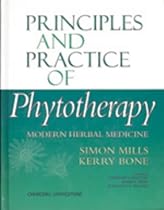 Others
Ginkgo biloba, Salvia miltiorrhiza and Zanthoxylum (prickly ash) will improve blood flow. Ginkgo decreases erythrocyte fragility and improves blood rheology and short-term memory. Valeriana (valerian), Passiflora incarnata (passionflower), Piper methysticum (kava) and other such herbs will help the disordered sleep pattern. Crataegus (hawthorn) may help any cardiac and circulatory abnormalities. EFA therapy with evening primrose oil and fish oil is recommended.
Case histories
'Kylie', aged 17, had glandular fever 6 years previously. Others
Ginkgo biloba, Salvia miltiorrhiza and Zanthoxylum (prickly ash) will improve blood flow. Ginkgo decreases erythrocyte fragility and improves blood rheology and short-term memory. Valeriana (valerian), Passiflora incarnata (passionflower), Piper methysticum (kava) and other such herbs will help the disordered sleep pattern. Crataegus (hawthorn) may help any cardiac and circulatory abnormalities. EFA therapy with evening primrose oil and fish oil is recommended.
Case histories
'Kylie', aged 17, had glandular fever 6 years previously. |
| Ginkgo biloba 50:1 standardized extract, 40 mg per tablet, two tablets per day, was also prescribed. After 10 weeks of treatment there was considerable improvement in the menorrhagia and pain. Herbal treatment was maintained for continued symptom control.
Endometriosis
Endometriosis is the presence of functioning endometrial tissue in an abnormal location. This may occur between the muscle fibres of the myometrium (uterine endometriosis) or in various locations in the pelvic cavity. |












